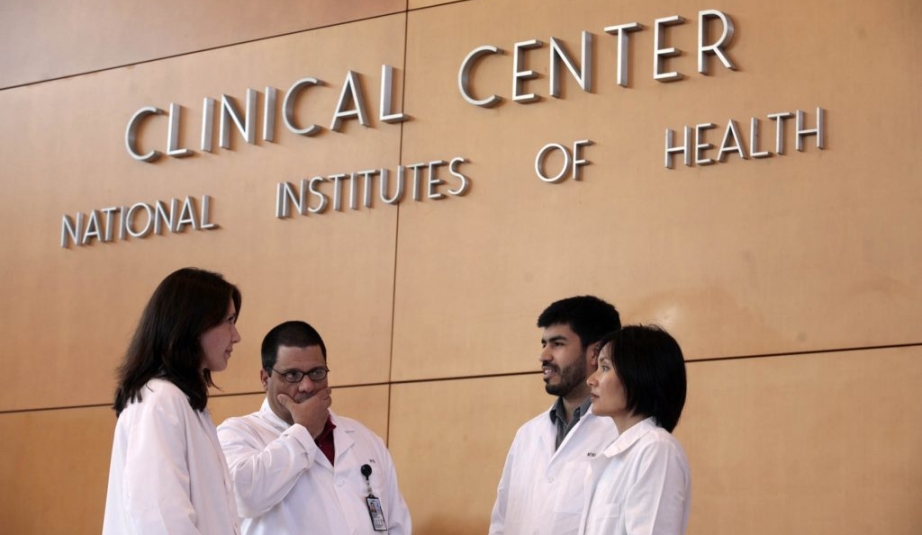NIH begins clinical trial of hydroxychloroquine and azithromycin to treat COVID-19. But is the trial destined to fail due to lack of essential component, ZINC?

Hydroxychloroquine is back again in the news after two months of assault from mainstream media. The politicization of the malaria drug has been one the biggest damage done by the opponents of President Trump to deny coronavirus patients with drug that may potentially save their lives. Remdesivir, the promising drug, did not deliver as everyone had hoped. Even Stats News suggested in a piece that “Gilead should ditch remdesivir and focus on its simpler and safer ancestor.”
“Remdesivir’s lackluster results in patients with advanced Covid-19 in the NIAID-sponsored trial and the finding that it provided no statistically significant benefit in a clinical trial conducted in China among patients with severe Covid-19 symptoms are likely due to the suboptimal level of active GS-441524 triphosphate in the lungs,” Stat News said.
Not without any side effects, hydroxychloroquine and its sister drug Chloroquine, have been in widespread human use since 1945 against malaria, autoimmune and various other conditions.” Early studies in France and clinical outcomes from multiple treating physicians using a combination therapy that included the drug provided hope to combat the virus.
Now, the the National Institutes of Health (NIH) finally announced it will begin a clinical trial using hydroxychloroquine and azithromycin in COVID-19 patients with mild to moderate symptoms. NIH said it has begun a clinical trial to evaluate whether the malaria drug hydroxychloroquine, given together with the antibiotic azithromycin, can prevent hospitalization and death from COVID-19.
According to the announcement, the trial will enroll about 2,000 adults across the U.S. and study participants must have confirmed infection with SARS-CoV-2, the virus that causes COVID-19. They must also be experiencing fever, cough and/or shortness of breath. NIH anticipates that many of those enrolled will be 60 years of age or older or have a comorbidity associated with developing serious complications from COVID-19, such as cardiovascular disease or diabetes.
“The main objective of the study is to determine whether hydroxychloroquine and azithromycin can prevent hospitalization and death due to COVID-19. Additionally, investigators will evaluate the safety and tolerability of the experimental treatment for people with SARS-CoV-2 infection. While hydroxychloroquine and azithromycin are both considered safe in most people, they can cause side effects ranging from headache and nausea to, rarely, heart rhythm problems that can be life-threatening. Because of the risk of heart problems when hydroxychloroquine is used alone or combined with azithromycin, FDA cautions that use of hydroxychloroquine for COVID-19 should be limited to clinical trials or for treating certain hospitalized patients under EUA(link is external) so clinicians can monitor patients for adverse effects, NIH says.
“We urgently need a safe and effective treatment for COVID-19. Repurposing existing drugs is an attractive option because these medications have undergone extensive testing, allowing them to move quickly into clinical trials and accelerating their potential approval for COVID-19 treatment,” said NIAID Director Anthony S. Fauci in a statement.
The National Institute of Allergy and Infectious Diseases (NIAID), part of the National Institutes of Health, is sponsoring the trial, which is being conducted by the NIAID-funded AIDS Clinical Trials Group (ACTG)
“Although there is anecdotal evidence that hydroxychloroquine and azithromycin may benefit people with COVID-19, we need solid data from a large randomized, controlled clinical trial to determine whether this experimental treatment is safe and can improve clinical outcomes,” the infectious disease expert explained.
However, is the trial destined to fail? Early last month, we told you about Dr. Anthony Cardillo when he said that hydroxychloroquine only works if used in combination with Zinc. Dr. Cardillo provides the same explanation in his interview with ABC News. He said that combining hydroxychloroquine with zinc has been the key to the success. The hydroxychloroquine, he said, “opens the zinc channel” allowing the zinc to enter the cell, which then “blocks the replication of cellular machinery.”
“Intracellular Zinc interferes with coronavirus transcription, which results in the ability of the virus to replicate. However, being a ++ ion, extracellular zinc requires active transport to pass across the cell membrane. It so happens that chloroquine is a zinc ionophore, thus provides zinc++ with the transport mechanism. In this instance, chloroquine has no drug action. It is the zinc that is in play, and I find it concerning that so many news organizations (and governments) are failing to convey this fact..opting, instead, to portray chloroquine as having the key drug action,” Dr. Cardillo.
Whatever the outcome might be, we will keep you posted as soon the results of the trials are out.
In the meantime, below is a video of Dr. Cardillo explaining the importance of Zinc and it works with hydroxychloroquine to provide relief for coronavirus patients.
https://youtu.be/8OKZbrk8Y7Q

